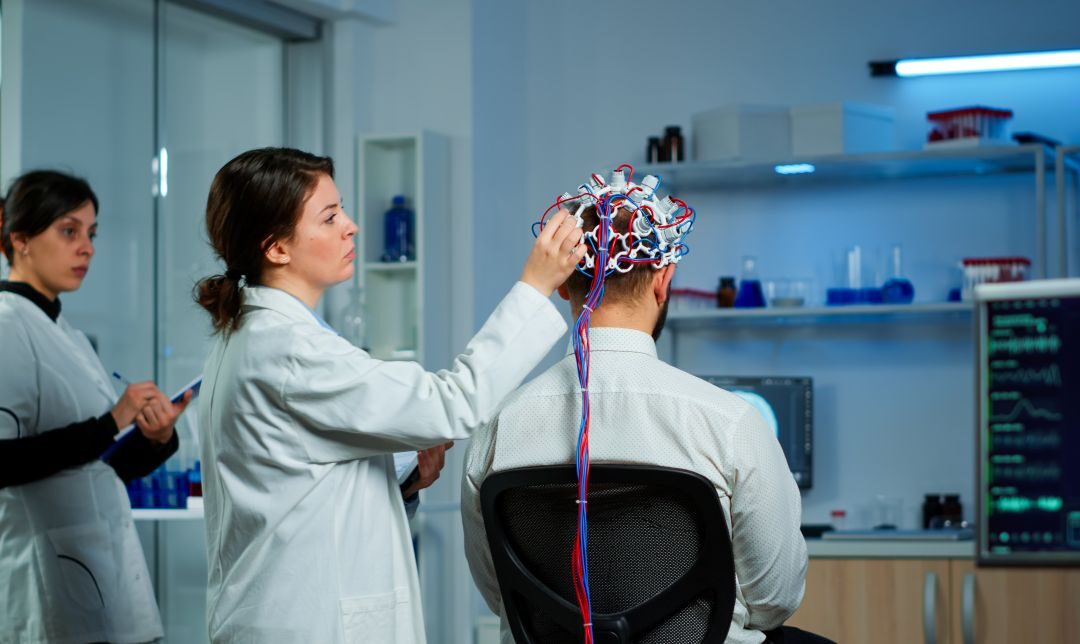Your seven-year-old is bright and creative, but their teacher keeps sending notes home about focus issues. You’ve tried everything: earlier bedtimes, limiting sugar, reward charts. Meanwhile, your neighbor mentions their child had similar struggles until they tried something unexpected—pediatric chiropractic with a neurological focus. You’re intrigued but skeptical. How could this possibly help?
Most parents are surprised to learn that challenges like focus difficulties, sleep disruptions, and behavioral concerns often trace back to one overlooked area: neurological function. When a child’s nervous system is stuck in stress mode, it shows up in seemingly unrelated ways. The exhausting cycle continues because we’re not addressing what’s happening beneath the surface.
At The Healing Place in Franklin, TN, we witness this distinction daily. Parents seeking help for one concern—maybe chronic ear infections or sleep troubles—discover that supporting their child’s neurological health creates unexpected improvements. It’s understanding that developing neural pathways control far more than we realize. When these systems function optimally, everything else begins falling into place.
Think of your child’s neurological function as an orchestra conductor. When the conductor is clear, every section plays in harmony. But when communication breaks down, you might hear strings struggling while percussion is off-tempo. Similarly, stressed neural pathways might manifest as digestive issues in one child, focus challenges in another, or sleep disruptions in a third.
Understanding Neurologically Focused Pediatric Chiropractic
When most people hear “chiropractic,” they picture adults seeking back pain relief. But neurological chiropractic represents something entirely different—especially for kids. Rather than simply addressing spinal alignment, pediatric chiropractic care recognizes that neurological pathways orchestrate every aspect of growth, brain development, and daily function.
Traditional chiropractic focuses on bones and joints for pain relief. In contrast, neurologically-focused pediatric chiropractors examine how well your child adapts to stress, processes sensory information, and maintains balance between activity and rest. We’re assessing whether neural communication can effectively coordinate millions of signals traveling between brain and body.
The techniques used in pediatric chiropractic bear no resemblance to adult adjustments. There’s no twisting or forceful spinal manipulation. Instead, practitioners use incredibly gentle approaches—often no more pressure than testing a tomato’s ripeness. Specialized techniques work with the body’s own reflexes, while instrument-assisted methods deliver precise, gentle inputs that help reset neurological patterns.

The Science Behind Your Child’s Nervous System
To appreciate how this care helps young ones thrive, let’s explore what’s happening inside. The central components—brain and spinal cord—act as mission control, while peripheral nerves extend throughout the body. Together, they coordinate everything from heartbeat to learning new concepts at school.
The autonomic system plays a crucial role in pediatric health. Its sympathetic branch activates “fight-or-flight” responses, while the parasympathetic branch enables calm focus, healing, and growth. When balanced, kids smoothly transition from playground games to classroom learning, from adventures to peaceful sleep.
The vagus nerve influences digestion, heart rate, immune function, and social engagement. When compromised—often from birth stress or falls—young patients may struggle with everything from tummy troubles to anxiety to frequent infections.
Perhaps most exciting is childhood neuroplasticity—the brain’s ability to form new connections throughout development. Supporting neurological function during these crucial years establishes healthier patterns for life.
Recognizing Nervous System Stress in Children
Young patients experiencing neurological stress show various signs. Sleep disruptions often provide the first clue—difficulty falling asleep, frequent waking, or restlessness indicate the body can’t shift into parasympathetic mode for restorative rest.
Recurring ear infections often indicate neurological involvement. When neural pathways aren’t functioning optimally, it affects drainage and immune response. Parents in Franklin, TN, express amazement when chronic infections resolve after addressing vertebral subluxation and restoring proper nerve function.
Digestive issues tell another story. Chronic constipation, stomachaches, and reflux can stem from neurological dysregulation. When stressed, the body diverts energy from digestion, creating mealtime battles.
Behavioral and sensory processing challenges bring many families seeking help. Kids who seem overwhelmed or struggle with transitions may be showing sensory integration difficulties. Their neural pathways aren’t properly filtering sensory information, leaving them dysregulated.
Developmental delays warrant attention too. Persistent primitive reflexes, missed milestones, or coordination challenges indicate neurological support is needed. These aren’t laziness—they’re indicators the body needs help establishing proper patterns.
Transformations Parents Witness
When children receive consistent pediatric chiropractic care, changes often surprise parents. Sleep transformation comes first—little ones fall asleep easier, sleep soundly, and wake refreshed. The whole family benefits from better rest.
Ear infection reduction amazes families. By improving neurological function and drainage, young bodies maintain health naturally. Parents cancel recurring ENT appointments and watch their kids play through previously difficult seasons.
Digestive improvements bring relief. Picky eaters become adventurous, constipated little ones establish regular patterns, and reflux resolves. Functional medicine principles show gut health affects whole-body health—proper nerve function plays a key role.
For those with focus challenges, including ADHD or sensory disorders, pediatric chiropractic can be game-changing. Teachers notice increased attention spans. Homework battles decrease. Social interactions improve as young patients better regulate emotions.
Physical coordination improves too. Clumsy kids gain confidence. Young athletes recover faster. Posture improves despite screen time—the body’s improved function shows in every movement aspect.

Your Child’s Journey at The Healing Place
Every child’s journey begins with listening to your concerns, history, and goals. We want to understand the whole child and family.
Our comprehensive assessment uses advanced INSIGHT scanning technology to objectively measure neurological function through surface EMG, thermal scanning, and heart rate variability. These non-invasive, kid-friendly tools help us understand your child’s unique patterns.
We develop personalized treatment plans based on findings. Visit frequency, techniques, and duration are tailored to age, condition, and neurological patterns. We set clear milestones to track progress objectively.
The actual adjustments are gentle and playful. Babies might be adjusted while nursing. Toddlers play during visits. School-age kids see appointments as special time. Teens appreciate non-judgmental support.
We provide home strategies—simple exercises and lifestyle modifications amplifying chiropractic therapy benefits. Regular reassessments track progress, showing neural function becoming balanced and resilient.
Supporting Every Stage of Childhood
Each developmental stage brings unique opportunities. For infants, early intervention prevents cascading challenges. Birth stress, even under ideal circumstances, affects neural pathways. Gentle care addresses latching difficulties, colic, and sleep issues.
Toddlers learning to walk, talk, and navigate emotions benefit from family chiropractic care. It helps integrate primitive reflexes and develop emotional regulation. Parents notice improved tantrum management as neural balance improves.
School-age children face academic demands and increased screen time affecting neurological function. Regular pediatric chiropractic maintains posture, supports focus, and strengthens resilience. Young students in middle Tennessee’s competitive environment particularly benefit.
Teenagers juggling academics, sports, and hormones find chiropractic care maintains balance. Injuries heal faster, anxiety decreases, sleep improves. The body awareness developed serves them into adulthood.
Choosing the Right Practitioner
Not all chiropractors provide pediatric chiropractic care with neurological focus. Look for advanced pediatric training through organizations like the International Chiropractic Pediatric Association (ICPA).
Technology matters—practices using INSIGHT scanning or heart rate variability monitoring track progress precisely, transforming care from guessing to measurable improvement.
The environment should welcome children who need to move and play. Sterile, silent environments rarely help young patients feel comfortable enough to heal.
Taking Action for Your Child’s Health
If you recognize your child in these descriptions, helping their neurological function improve doesn’t require dramatic interventions.
Consider starting with a consultation. List concerns and goals beforehand—patterns emerge that aren’t obvious in daily chaos. During your visit, bring relevant history but don’t worry about every detail. What matters is understanding where your child is and where you’d like them to be.
Supporting your child’s neurological health optimizes their body’s innate ability to grow, heal, and thrive. When neural pathways work better, everything works better. When our children thrive, entire families benefit.
Ready to explore how pediatric chiropractic could help?
Contact us to schedule a consultation at The Healing Place. Let’s help your child’s neurological function reach its full potential. Every child in Franklin, TN, and beyond deserves the opportunity to thrive.
